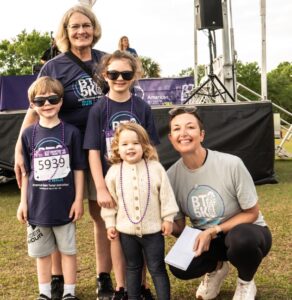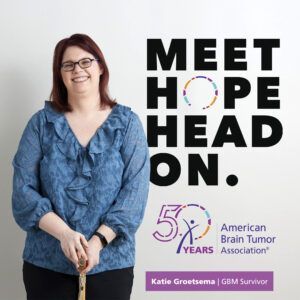Guest Author: Robin Ferrill
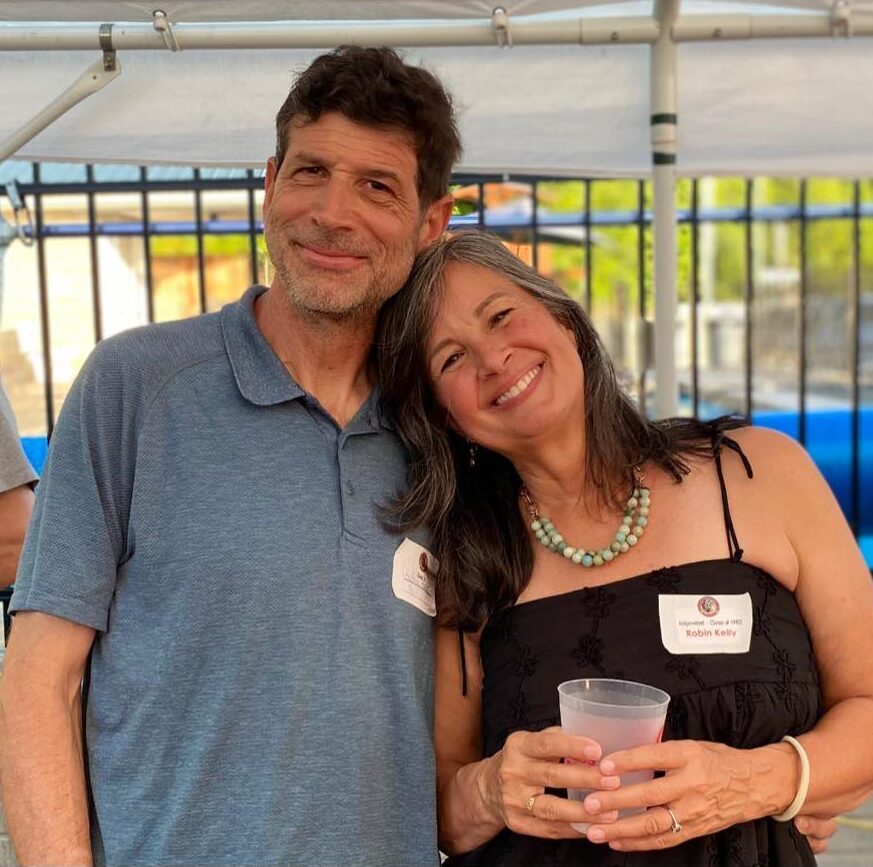
November is National Family Caregivers Month, a time to recognize and appreciate the tireless efforts you dedicate each day caring for a loved one. Caregivers take on many roles, from researching treatments to managing side effects and arranging appointments.
I took on the role of caregiver for my husband, Neill, when he was diagnosed with glioblastoma (GBM) in May of 2022. This was the same diagnosis that took the life of Neill’s 83-year-old father three years ago.
A GBM diagnosis comes with obstacles, but we also have a lot to be grateful for, including our four adult children and two precious grandkids.
In the past year and a half, we’ve received some great advice and tried new things that have made a huge difference for us. Here are some tips and routines that may help you as well:
- Prioritize Overall Health: We enlisted the help of a specialized nutritionist, tailored to cancer patients. This not only supported Neill’s cancer journey but improved his overall health. We went sugar-free and organic as much as possible. We recommend using an app like “Chronometer,” which helps us track our daily diet and monitor blood sugar and ketones.
- Stay Active: We invested in a mini trampoline for “rebounding” exercises, a type of low-impact aerobics that improves lymph fluid circulation. It’s a lot of fun too! If you’re not able to jump or have less energy, stretching exercises on your bed or floor mat can energize you and loosen muscles. Chair exercises are also good for the elderly or wheelchair-bound people. Whatever you’re able to do, staying active counts!
- Hydration Matters: Staying hydrated is simple, but easily overlooked. After we learned Neill didn’t drink enough water, we were told to divide his body weight by two—that’s the number of fluid ounces Neill should drink each day. Proper hydration has made Neill’s infusions more comfortable and kept his nausea at bay—a real game-changer!
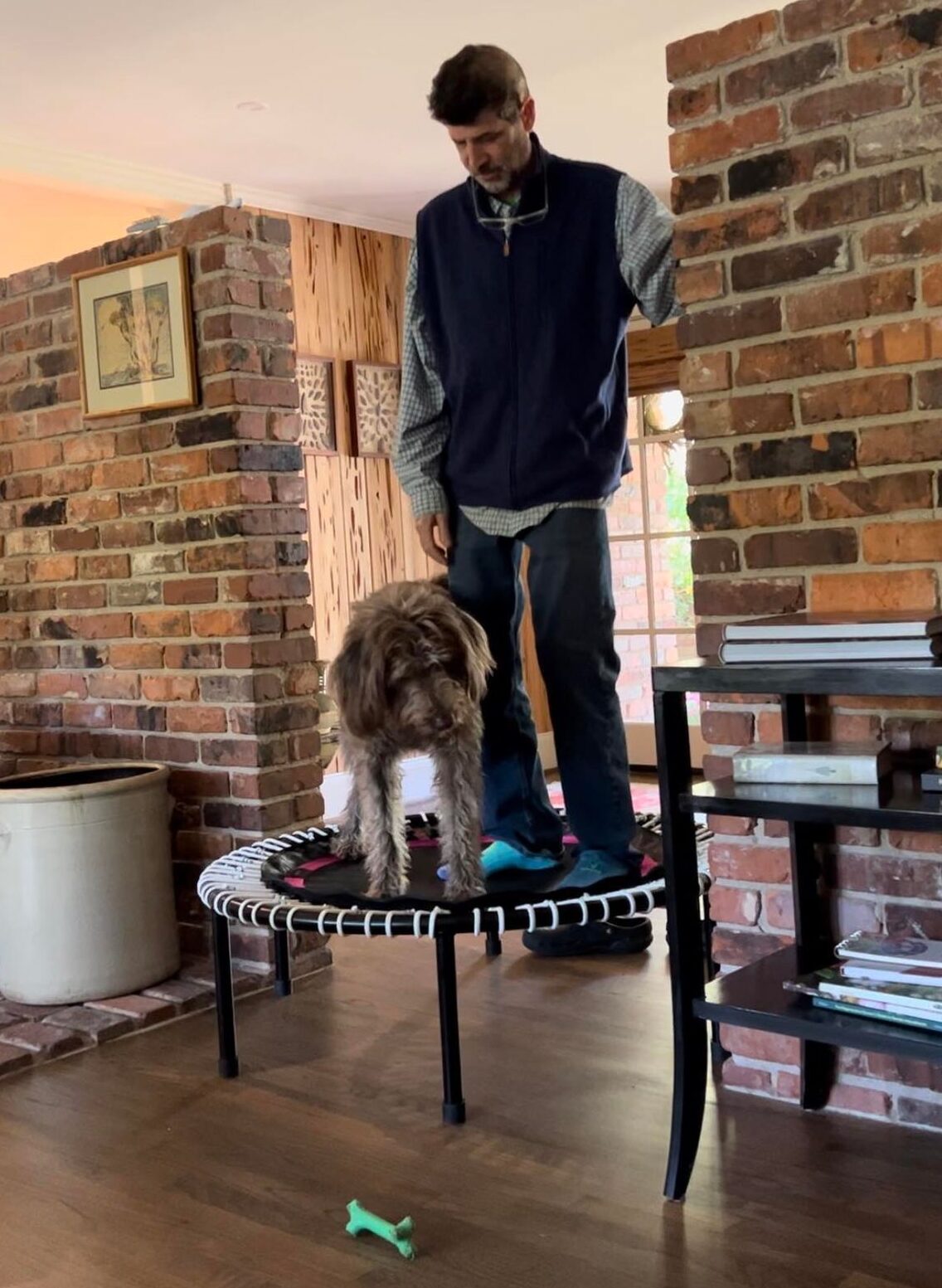
- Attend Appointments: If possible, attend your loved one’s treatments and doctor’s visits. It eases your mind and builds trust with their healthcare team. I’ve always been a caretaker in some capacity, so attending my husband’s appointments and being there to help him on hard days of treatment has been positive for my own wellbeing.
- Embrace Change: Change is a part of this journey. Find joy in the small things and keep your sense of humor alive. Neill and I laugh at the dumbest things. Some days it keeps me from crying. Example: when he lost his hair from radiation, we went to the barber and asked for a “cancer cut.” First, he cut his hair into a mohawk, and then into a ‘50s style “bumper” or “pineapple” cut, where you basically have a lot of hair in the front. Neill eventually ended up with a shaved head, but we laughed so hard that day and he looked handsome as ever.
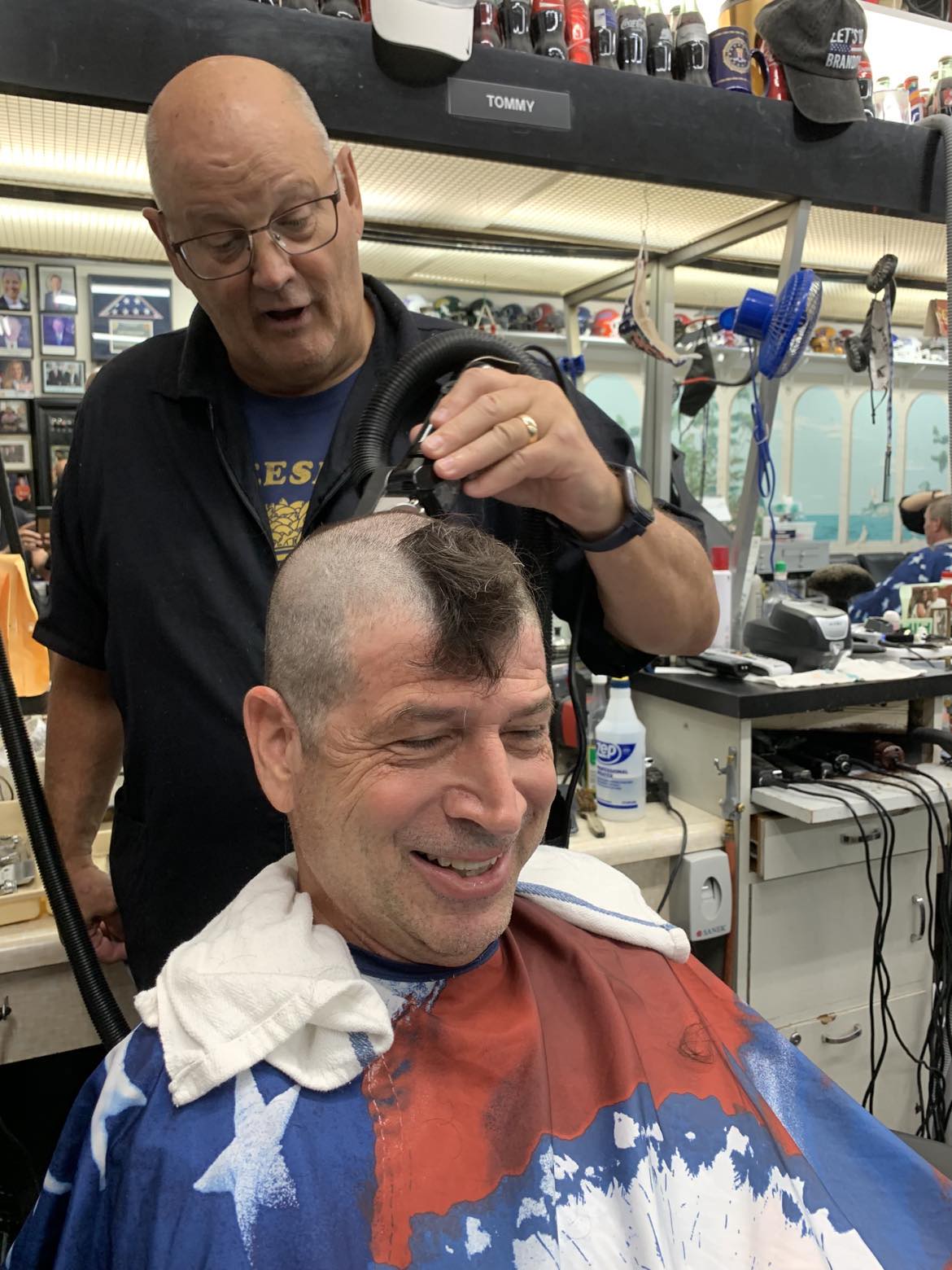
- Maintain Positivity: Despite the challenging diagnosis, we’ve encountered many uplifting people and blessings. Embracing gratitude and staying positive is key. It’s a reminder that we have today, and we must cherish it. The best advice I received: when I told my dear friend I could not imagine life without my husband and she replied:
“Then don’t. Now is the season to be grateful and count your blessings. The season for grief may come someday, but that is not today.”
As we head into the holiday season, remember that life is unpredictable and we’re all on a unique journey. Despite all the challenges that come with a brain tumor diagnosis, you can still find beauty in each day (and remember to take care of yourself!).
P.S. Here are some helpful caregiver resources from the ABTA.

Jessie Schlacks
Jessie is Managing Editor of the bi-monthly e-newsletter MindMatters. Submit story ideas or questions to jschlacks@abta.org.


